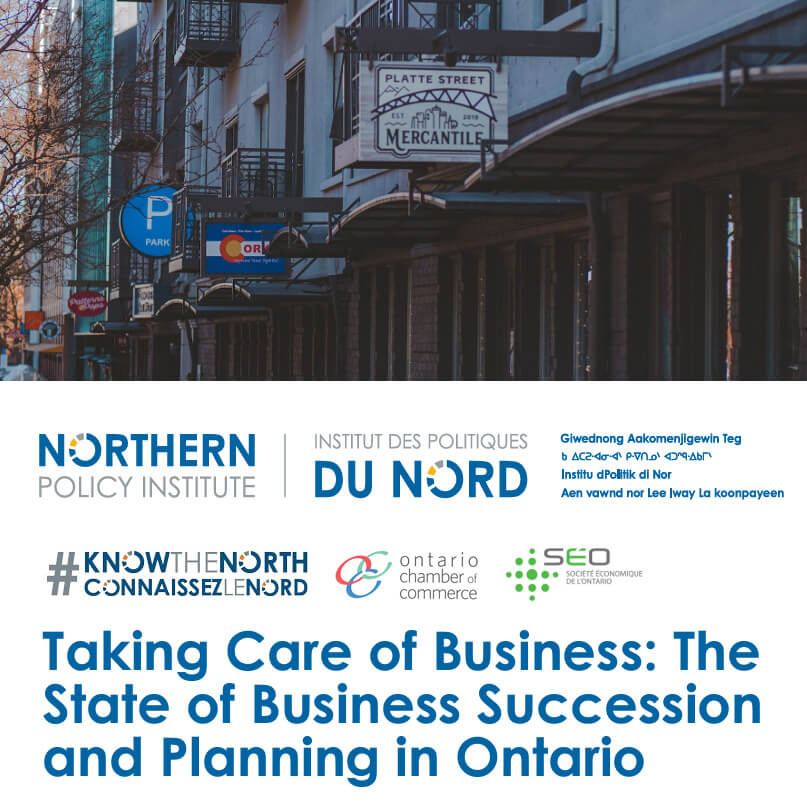Introduction
As many of Canada’s large baby-boomer generation (those born between 1946 and 1965) are reaching the typical age of retirement, the Canadian economy is poised to see many experienced workers exit the labour force, likely including many business owners and leaders (Lu and Hou 2022). This process by which an organization changes ownership or leadership is known as “succession.” Related to succession is the concept of “succession planning,” whereby owners or leaders develop an exit strategy that best serves themselves and the future of their organization.
Northern Policy Institute (NPI) has partnered with the Ontario Chamber of Commerce (OCC) and Société Économique de l’Ontario (SÉO) to understand the state of business succession and succession planning in Ontario. Through this partnership, a survey was developed to ask businesses and other employers about their succession plans. This survey found that many business owners and leaders are likely to sell or retire soon, creating opportunities for people in Ontario to take over existing businesses. Many organizations, however, lack adequate succession planning.
The Importance of Succession Planning
Succession planning plays an important role in the smooth transition when a business or other organization changes ownership or leadership. Planning allows organizations to establish timelines for succession, identify new leadership, and prepare employees to take over leadership roles through talent development and knowledge transfer. For an owner-managed business, planning is needed for the various technical aspects of succession, including financial, tax, and legal considerations (Cruz 2018). Such planning can benefit owners by helping them receive the full value of their business (ibid.). Conversely, businesses that fail to plan for succession are at a higher risk of experiencing gaps in knowledge and leadership that could result in reduced performance and business value.
Succession planning is important for more than just business owners. Inadequate business succession planning risks job losses, reduced productivity, and lost government revenue (Geobey and Ronson 2018). Consumers can also suffer if businesses they rely on for goods and services are disrupted by poor succession planning. Ultimately, succession planning is important because it helps ensure the long-term sustainability and success of an organization and, in turn, the wider economy.




